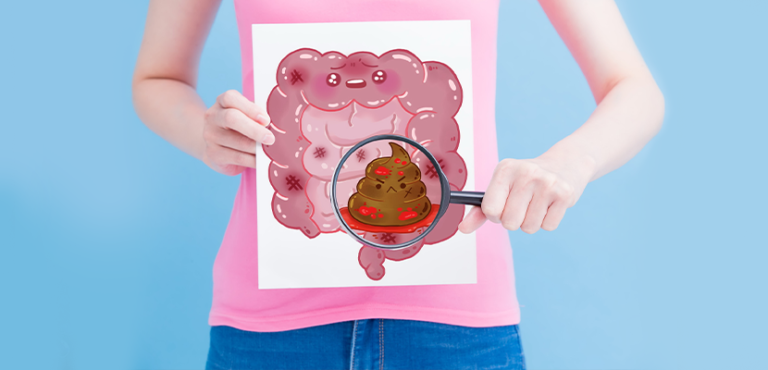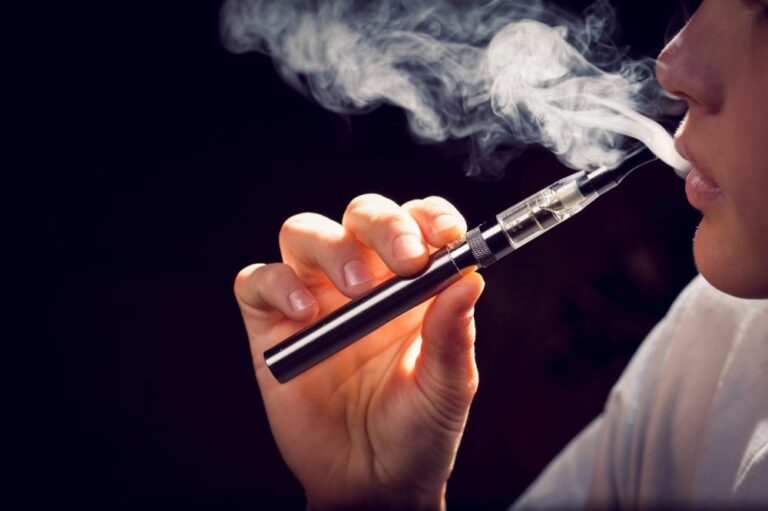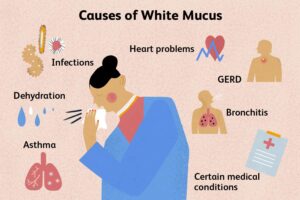Foul-smelling gas and bloating are common digestive issues that can cause significant discomfort and embarrassment. While everyone experiences gas and bloating from time to time, when it comes with an unpleasant odor and frequent occurrence, it can be more than just a minor inconvenience. In this article, we will delve into the causes, symptoms, and effective management strategies for foul-smelling gas and bloating. Understanding the root causes can help you address the issue and improve your digestive health.
What is Gas and Bloating?
Gas is a natural byproduct of the digestive process. When we eat, drink, or swallow air, gas can build up in the digestive tract. Bloating is the feeling of fullness or swelling in the abdomen that often accompanies gas. These conditions are usually harmless, but they can be uncomfortable and sometimes painful.
The Digestive Process
Understanding how the digestive process works can provide insight into why gas and bloating occur. The digestive system breaks down food into smaller components that the body can absorb and use for energy, growth, and repair. During this process, bacteria in the intestines break down some of the food, producing gas as a byproduct. This gas is either expelled through burping or flatulence.
Causes of Foul Smelling Gas and Bloating
Foul-smelling gas and bloating can be triggered by various factors, ranging from diet to underlying medical conditions. Identifying the cause is the first step in managing these symptoms effectively.
1. Dietary Factors
Certain foods are more likely to cause foul smelling gas and bloating. These include:
- High-Fiber Foods: While fiber is essential for digestive health, some high-fiber foods, such as beans, lentils, and cruciferous vegetables (like broccoli and cabbage), can produce more gas as they ferment in the gut.
- Fatty Foods: High-fat foods can slow down digestion, leading to gas build-up.
- Sugary Foods: Some sugars, like lactose (found in dairy products) and fructose (found in fruits and some sweeteners), can cause gas when they are not properly absorbed in the intestines.
2. Swallowing Air
Swallowing air while eating or drinking can contribute to gas and bloating. This can happen when you eat too quickly, drink carbonated beverages, or chew gum.
3. Gut Microbiota Imbalance
The gut microbiota, a complex community of bacteria living in the intestines, plays a crucial role in digestion. An imbalance in this microbiota can lead to increased gas production and foul odors. Conditions like Small Intestinal Bacterial Overgrowth (SIBO) are known to cause significant bloating and foul-smelling gas.
4. Food Intolerances and Allergies
Food intolerances, such as lactose intolerance or gluten sensitivity, can cause foul-smelling gas and bloating. When the body cannot properly digest certain components of food, they ferment in the gut, leading to gas production.
5. Medical Conditions
Certain medical conditions can also cause foul-smelling gas and bloating, including:
- Irritable Bowel Syndrome (IBS): A common condition that affects the large intestine, causing symptoms like cramping, abdominal pain, bloating, and gas.
- Celiac Disease: An autoimmune disorder where the ingestion of gluten leads to damage in the small intestine, often resulting in gas and bloating.
- Gastroenteritis: Inflammation of the stomach and intestines caused by infection, leading to symptoms like diarrhea, vomiting, and gas.
Symptoms Associated with Foul-Smelling Gas and Bloating
Foul-smelling gas and bloating are often accompanied by other symptoms that can help identify the underlying cause. These symptoms include:
1. Abdominal Pain and Discomfort
Pain or discomfort in the abdomen is common with bloating. This pain can range from mild to severe and is often relieved after passing gas.
2. Nausea
Some people experience nausea along with bloating and gas, especially after eating.
3. Diarrhea or Constipation
Changes in bowel habits, such as diarrhea or constipation, often accompany gas and bloating. These symptoms can indicate a digestive disorder like IBS or food intolerance.
4. Burping
Burping is a way for the body to expel excess air that has been swallowed. Frequent burping, especially with a foul odor, can be a sign of digestive issues.
Diagnosis of Foul Smelling Gas and Bloating
If you experience persistent or severe foul-smelling gas and bloating, it may be necessary to seek medical attention. A healthcare provider can help diagnose the underlying cause through a variety of methods.
1. Medical History and Physical Examination
Your doctor will start by asking about your medical history, diet, and symptoms. A physical examination may also be performed to check for signs of digestive issues.
2. Dietary Analysis
A food diary can be helpful in identifying any dietary triggers. Recording what you eat and drink, along with symptoms, can provide valuable information to your healthcare provider.
3. Breath Tests
Breath tests are used to diagnose conditions like lactose intolerance and SIBO. These tests measure the amount of hydrogen or methane in your breath after consuming a specific substance, indicating how well your body is digesting it.
4. Stool Tests
Stool tests can help identify infections, inflammation, and other conditions that may cause gas and bloating.
5. Imaging Tests
In some cases, imaging tests like X-rays, ultrasounds, or CT scans may be needed to examine the digestive organs for any abnormalities.
Treatment and Management of Foul-Smelling Gas and Bloating
Managing foul-smelling gas and bloating often involves a combination of dietary changes, lifestyle modifications, and medical treatments.
1. Dietary Adjustments
One of the most effective ways to manage gas and bloating is by adjusting your diet. Consider the following strategies:
- Identify and Avoid Trigger Foods: Keeping a food diary can help you identify foods that cause gas and bloating. Common triggers include beans, lentils, broccoli, cabbage, and dairy products.
- Increase Fiber Gradually: If you need to increase your fiber intake, do so gradually to give your digestive system time to adjust.
- Stay Hydrated: Drinking plenty of water helps keep the digestive system moving and can prevent constipation, which can contribute to bloating.
- Limit Carbonated Beverages: Carbonated drinks can introduce excess air into your digestive system, leading to bloating and gas.
2. Probiotics and Prebiotics
Probiotics are beneficial bacteria that can help restore balance in the gut microbiota. Taking a probiotic supplement or consuming probiotic-rich foods like yogurt and kefir may reduce gas and bloating. Prebiotics, which are non-digestible fibers that feed beneficial bacteria, can also support gut health.
3. Over-the-Counter Remedies
Several over-the-counter medications can help relieve gas and bloating, including:
- Simethicone: An anti-foaming agent that helps break up gas bubbles in the digestive tract.
- Activated Charcoal: Can absorb excess gas and reduce odor, though its effectiveness is not well-supported by research.
- Antacids: May help relieve bloating caused by acid indigestion.
4. Prescription Medications
If your symptoms are severe or related to a medical condition, your doctor may prescribe medications to manage them. These may include antibiotics for SIBO, antispasmodics for IBS, or enzyme supplements for food intolerances.
5. Lifestyle Changes
In addition to dietary adjustments, making certain lifestyle changes can also help reduce gas and bloating:
- Eat Slowly: Eating too quickly can cause you to swallow air, leading to gas and bloating. Take your time to chew your food thoroughly.
- Exercise Regularly: Physical activity helps stimulate digestion and can prevent bloating and constipation.
- Manage Stress: Stress can affect digestion and contribute to gas and bloating. Techniques like deep breathing, meditation, and yoga can help manage stress levels.
When to See a Doctor
While gas and bloating are common, persistent or severe symptoms may indicate a more serious underlying condition. You should seek medical attention if you experience:
- Unexplained weight loss
- Severe abdominal pain
- Blood in stool
- Persistent diarrhea or constipation
- Vomiting
These symptoms could be signs of conditions like Crohn’s disease, ulcerative colitis, or even colorectal cancer, and require prompt medical evaluation.
Prevention of Foul-Smelling Gas and Bloating
Preventing gas and bloating largely involves maintaining a healthy digestive system. Here are some tips to keep your gut in good shape:
1. Follow a Balanced Diet
Eating a balanced diet rich in fruits, vegetables, whole grains, and lean proteins can support healthy digestion. Avoid excessive amounts of high-fat, high-sugar, and processed foods.
2. Chew Your Food Thoroughly
Taking the time to chew your food thoroughly can reduce the amount of air you swallow and make it easier for your digestive system to break down food.
3. Stay Active
Regular exercise helps keep the digestive system moving and can prevent issues like constipation, which can contribute to bloating.
4. Limit Artificial Sweeteners
Artificial sweeteners like sorbitol and mannitol can cause gas and bloating, as they are not fully absorbed by the body.
Conclusion
Foul-smelling gas and bloating, though often dismissed as minor inconveniences, can significantly impact your comfort and quality of life. Understanding the causes—ranging from dietary factors and gut microbiota imbalances to underlying medical conditions—can empower you to manage and reduce these symptoms effectively.
By identifying trigger foods, making dietary adjustments, and incorporating lifestyle changes, you can alleviate much of the discomfort associated with gas and bloating. Utilizing over-the-counter remedies and seeking medical advice when necessary will further aid in addressing persistent issues and improving your overall digestive health.
Remember, while occasional gas and bloating are normal, persistent or severe symptoms warrant medical attention. Consulting with a healthcare professional can help you rule out serious conditions and tailor a treatment plan specific to your needs.
Taking proactive steps to manage foul-smelling gas and bloating will not only enhance your comfort but also contribute to a healthier, happier digestive system.














One thought on “What Causes Foul Smelling Gas and Bloating?”